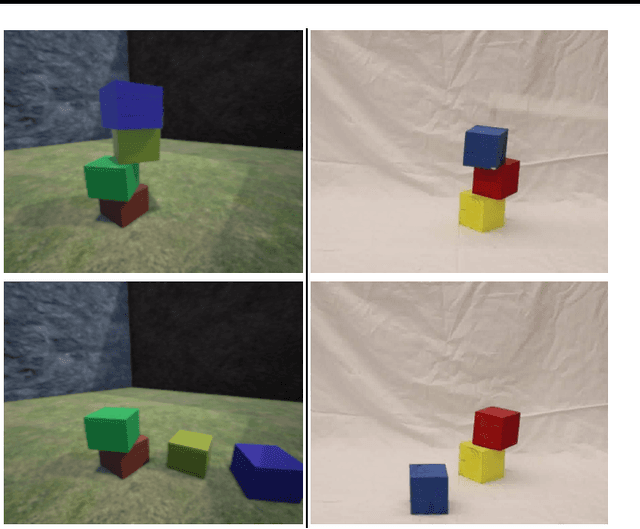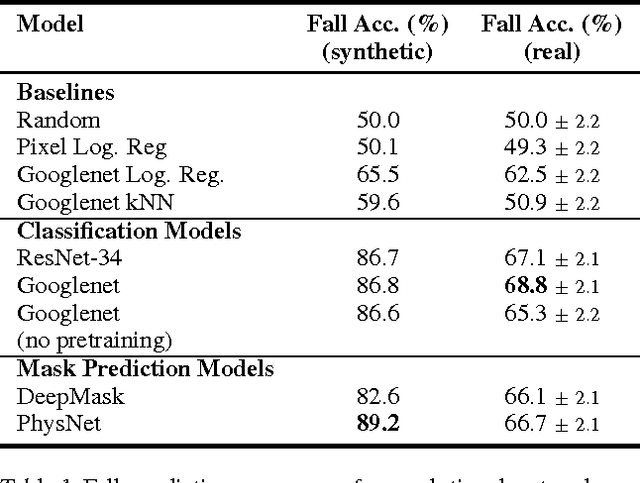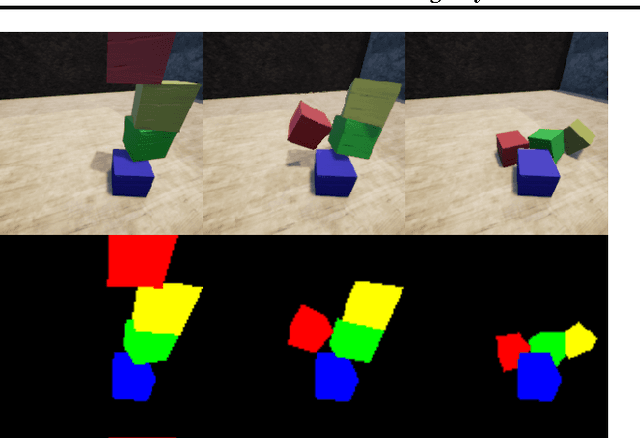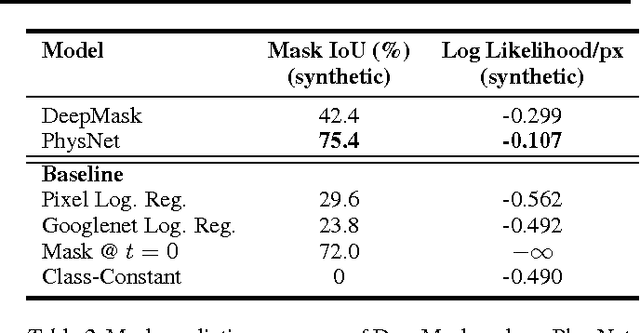Learning Physical Intuition of Block Towers by Example
Paper and Code
Mar 03, 2016



Wooden blocks are a common toy for infants, allowing them to develop motor skills and gain intuition about the physical behavior of the world. In this paper, we explore the ability of deep feed-forward models to learn such intuitive physics. Using a 3D game engine, we create small towers of wooden blocks whose stability is randomized and render them collapsing (or remaining upright). This data allows us to train large convolutional network models which can accurately predict the outcome, as well as estimating the block trajectories. The models are also able to generalize in two important ways: (i) to new physical scenarios, e.g. towers with an additional block and (ii) to images of real wooden blocks, where it obtains a performance comparable to human subjects.
 Add to Chrome
Add to Chrome Add to Firefox
Add to Firefox Add to Edge
Add to Edge